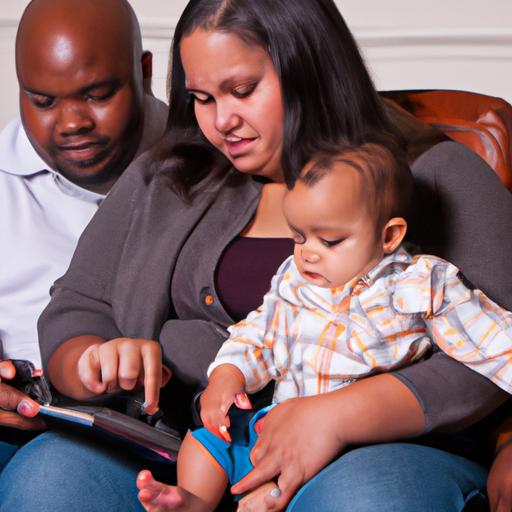How Have Thoughts on Parenting Styles Changed Over the Years?

Introduction

Parenting styles have always been influenced by various factors, evolving over time to adapt to societal changes and new understandings of child development. As we navigate the ever-changing landscape of parenthood, it becomes crucial to explore how thoughts on parenting styles have transformed throughout the years. In this article, we will delve into the evolution of parenting styles and discuss the importance of understanding these changes.
Evolution of Parenting Styles
Parenting styles have undergone a remarkable transformation over the years. From the traditional authoritarian approach to the modern-day helicopter and attachment parenting, there has been a shift in how parents perceive and practice raising their children.
Importance of Understanding Changing Thoughts on Parenting Styles
Understanding the changing thoughts on parenting styles is essential for both parents and caregivers. It allows us to adapt our approach based on the latest research and insights, ultimately benefiting the well-being and development of our children. By exploring the evolution of parenting styles, we can gain valuable knowledge that helps us make informed decisions and create a nurturing environment for our little ones.
With the groundwork set, let’s explore the traditional parenting styles in Section 2 and discover how they have shaped our understanding of effective parenting.
Traditional Parenting Styles

A. Authoritarian Parenting
Authoritarian parenting is a traditional style characterized by strict rules, high expectations, and a lack of flexibility. In this approach, parents prioritize obedience and discipline above all else.
1. Definition and Characteristics
Authoritarian parents tend to be controlling and dictatorial, setting rigid rules and demanding unquestioning compliance from their children. They often use punishment as a means of discipline and believe that children should follow instructions without question.
2. Impact on Child Development
While authoritarian parenting may appear effective in maintaining order, it can have negative consequences on a child’s development. Children raised under this style may grow up with low self-esteem, lack of decision-making skills, and difficulty in expressing their emotions. They may also exhibit rebellious behavior or become overly dependent on authority figures.
B. Authoritative Parenting
Authoritative parenting is another traditional style that strikes a balance between discipline and nurturing. It emphasizes open communication, mutual respect, and setting clear boundaries.
1. Definition and Characteristics
Authoritative parents provide guidance and support while encouraging their children to think independently and make decisions. They set expectations but also take their child’s opinions into consideration. This parenting style promotes a healthy balance of rules and freedom for personal growth.
2. Impact on Child Development
Children raised under authoritative parenting tend to have higher self-esteem, better social skills, and greater academic success. They learn to be independent thinkers, problem solvers, and have healthier relationships as they grow older.
C. Permissive Parenting
Permissive parenting is a more lenient approach where parents exhibit minimal control over their child’s behavior and tend to avoid confrontation or discipline.
1. Definition and Characteristics
Permissive parents are often indulgent and lenient, granting their children considerable freedom without enforcing clear boundaries or consequences. They prioritize their child’s happiness and may hesitate to set rules or discipline them.
2. Impact on Child Development
While permissive parenting allows for a nurturing and accepting environment, it can lead to negative outcomes in a child’s development. Children raised under permissive parenting may struggle with self-control, have difficulty following rules, and may exhibit entitlement or disrespectful behavior.
Understanding these traditional parenting styles provides a foundation for comprehending the shifts that have occurred over the years. In the next section, we will explore the factors that have influenced the changes in parenting styles.
Shifts in Parenting Styles
Parenting styles have experienced significant shifts over time, driven by various psychological and societal factors. Let’s explore these factors and how they have influenced the transition from traditional to modern parenting styles.
Psychological and Societal Factors Influencing Change
Numerous psychological and societal factors have played pivotal roles in shaping parenting styles. As our understanding of child development deepens, we recognize the importance of fostering healthy emotional development, autonomy, and resilience in children. This shift has led to a departure from strict authoritarian approaches toward more balanced and nurturing parenting styles.
Moreover, societal changes have also impacted parenting practices. The evolving dynamics of family structures, increased emphasis on individuality, and cultural shifts have all contributed to a reevaluation of traditional parenting norms. As a result, parents today are more likely to seek a parenting style that aligns with their values and promotes their child’s overall well-being.
Transition from Traditional to Modern Parenting Styles
The transition from traditional to modern parenting styles has been driven by two key factors: the influence of psychological research and changing gender roles and parenting responsibilities.
1. The Influence of Psychological Research
Psychological research has played a crucial role in reshaping our understanding of effective parenting. Through extensive studies, researchers have shed light on the long-term effects of different parenting styles on children’s development. This knowledge has prompted a shift towards more positive and child-centered approaches, such as authoritative and attachment parenting.
2. Changing Gender Roles and Parenting Responsibilities
Over the years, there has been a significant evolution in gender roles and parenting responsibilities. With more women entering the workforce and fathers taking on more active caregiving roles, traditional gender-specific parenting roles have become less rigid. This shift has enabled parents to explore and adopt parenting styles that prioritize shared responsibilities and mutual involvement, promoting a more balanced and equitable approach to raising children.
As we continue to explore the changing landscape of parenting styles, let’s delve into the realm of modern parenting styles in Section 4.
Modern Parenting Styles
In today’s dynamic world, modern parenting styles have emerged, reflecting the changing dynamics of society and the evolving needs of children. Let’s explore three prominent modern parenting styles: helicopter parenting, free-range parenting, and attachment parenting.
A. Helicopter Parenting
Helicopter parenting is characterized by excessive involvement and overprotectiveness. These parents tend to hover over their children, constantly monitoring their activities and intervening in every aspect of their lives. The intention behind this style is to ensure the safety and success of their children, but it can have unintended consequences.
1. Definition and Characteristics
Helicopter parents are highly involved in their children’s lives, often making decisions for them and shielding them from potential risks and failures. They may micromanage their child’s schedule, academics, and social interactions, leaving little room for independent decision-making.
2. Impact on Child Development
While helicopter parenting may stem from good intentions, it can hinder a child’s development. Constant supervision and intervention can limit their ability to develop problem-solving skills, resilience, and independence. It may also lead to increased anxiety and self-doubt in children, as they rely heavily on their parents for guidance and decision-making.
B. Free-Range Parenting
In contrast to helicopter parenting, free-range parenting encourages independence and self-reliance in children. This style allows children to explore the world and take calculated risks within safe boundaries, fostering confidence and autonomy.
1. Definition and Characteristics
Free-range parents prioritize giving their children the freedom to explore and make choices on their own. They provide age-appropriate autonomy and responsibility, allowing children to learn from their experiences and develop essential life skills.
2. Impact on Child Development
Free-range parenting promotes self-confidence, problem-solving abilities, and decision-making skills in children. By allowing them to navigate challenges and natural consequences, children develop resilience and a sense of responsibility for their actions. However, it is crucial for parents to strike the right balance between freedom and safety to ensure the well-being of their children.
C. Attachment Parenting
Attachment parenting emphasizes nurturing strong emotional bonds between parents and children. This style focuses on meeting a child’s emotional needs promptly and providing a secure and responsive environment.
1. Definition and Characteristics
Attachment parents prioritize building a strong emotional connection with their children through practices such as baby-wearing, co-sleeping, and responsive feeding. They believe that meeting a child’s emotional needs creates a foundation for healthy relationships and emotional well-being.
2. Impact on Child Development
Attachment parenting fosters a sense of security, trust, and emotional intelligence in children. It helps them develop healthy social relationships, empathy, and self-regulation skills. However, it is essential to consider individual differences and adapt the approach based on the child’s needs and temperament.
With an understanding of these modern parenting styles, we can now explore the impact of technology on parenting styles in Section 5.
The Impact of Technology on Parenting Styles
Technology has become an integral part of our lives, permeating every aspect, including parenting. In this section, we will explore the role of technology in shaping parenting practices, examine the advantages and disadvantages of technological influence, and discuss the importance of balancing technology use with parenting styles.
A. Role of Technology in Shaping Parenting Practices
In today’s digital age, technology has revolutionized the way we parent. From pregnancy apps to smart baby monitors, there are a plethora of technological advancements designed to assist and enhance the parenting experience. Technology has provided parents with access to information, support communities, and resources at their fingertips. We can now track our child’s developmental milestones, seek advice from experts online, and connect with other parents facing similar challenges.
B. Advantages and Disadvantages of Technological Influence
While technology offers numerous benefits, it also poses certain risks and drawbacks. On one hand, it provides convenience, efficiency, and educational opportunities. On the other hand, excessive screen time and digital distractions can hinder interpersonal connections and impede child development. It is crucial to strike a balance between utilizing technology for its advantages while being mindful of its potential negative impacts.
C. Balancing Technology Use with Parenting Styles
Finding the right balance between technology use and parenting styles is essential. Each parenting style may approach technology differently, and it is up to parents to determine how to incorporate it into their approach. For example, authoritative parents may establish clear boundaries and guidelines for screen time, while permissive parents may allow more flexibility. Ultimately, it is important to prioritize meaningful interactions, maintain open communication, and ensure that technology does not replace essential aspects of parenting, such as emotional connection and quality time spent together.
With technology continuously evolving, it is crucial to stay informed, adapt, and make conscious choices regarding its role in our parenting journey. By understanding the impact of technology on parenting styles, we can harness its benefits while safeguarding the well-being and development of our children.
Stay tuned for the concluding section where we reflect on the changing thoughts on parenting styles and discuss the future outlook.
Conclusion
As we reflect on the changing thoughts on parenting styles, it is evident that our understanding of effective parenting has evolved significantly over the years. The traditional authoritarian, authoritative, and permissive styles, once predominant, have made way for more modern approaches such as helicopter parenting, free-range parenting, and attachment parenting.
It is crucial to adapt our parenting styles to meet the needs of our children in today’s rapidly changing world. The influence of psychological research and shifting gender roles has played a significant role in reshaping our perspectives on parenting. By staying informed about the latest insights and understanding the impact of technology on parenting, we can make well-informed decisions that promote the healthy development of our children.
At Tintucvn365.com, we recognize the importance of keeping up with these changing thoughts on parenting styles. We strive to provide valuable resources and information to support parents in their journey. Remember, there is no one-size-fits-all approach to parenting. Each child is unique, and it is essential to find a style that resonates with your values and meets the individual needs of your child.
As we move forward, let us embrace the evolving nature of parenting and continue to adapt our approaches to create nurturing environments for our children. By staying open-minded, seeking knowledge, and fostering strong connections with our children, we can navigate the ever-changing landscape of parenthood with confidence and grace.
So, join us on Tintucvn365.com as we explore the vast realm of parenting, empowering ourselves with insights and strategies that will help us raise resilient, compassionate, and well-rounded individuals.
Remember, parenting is a journey of growth and discovery. Together, let’s shape the future of parenting with love, understanding, and a commitment to nurturing the next generation.





